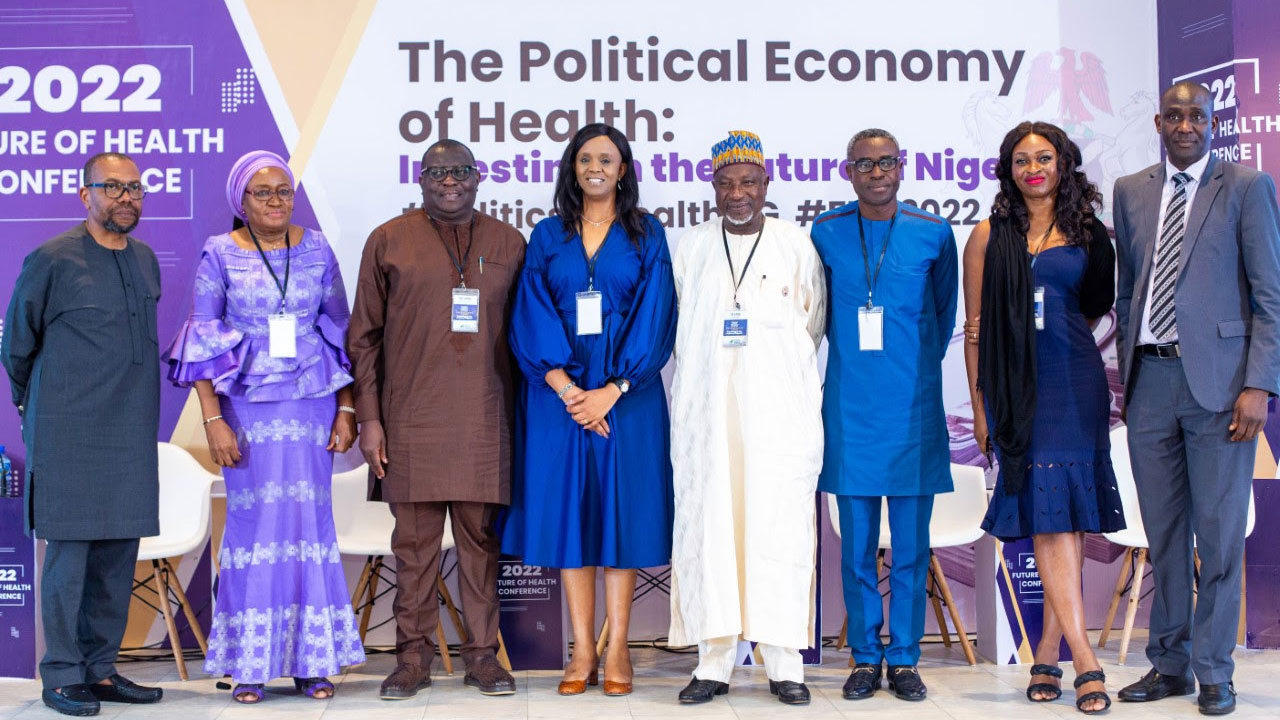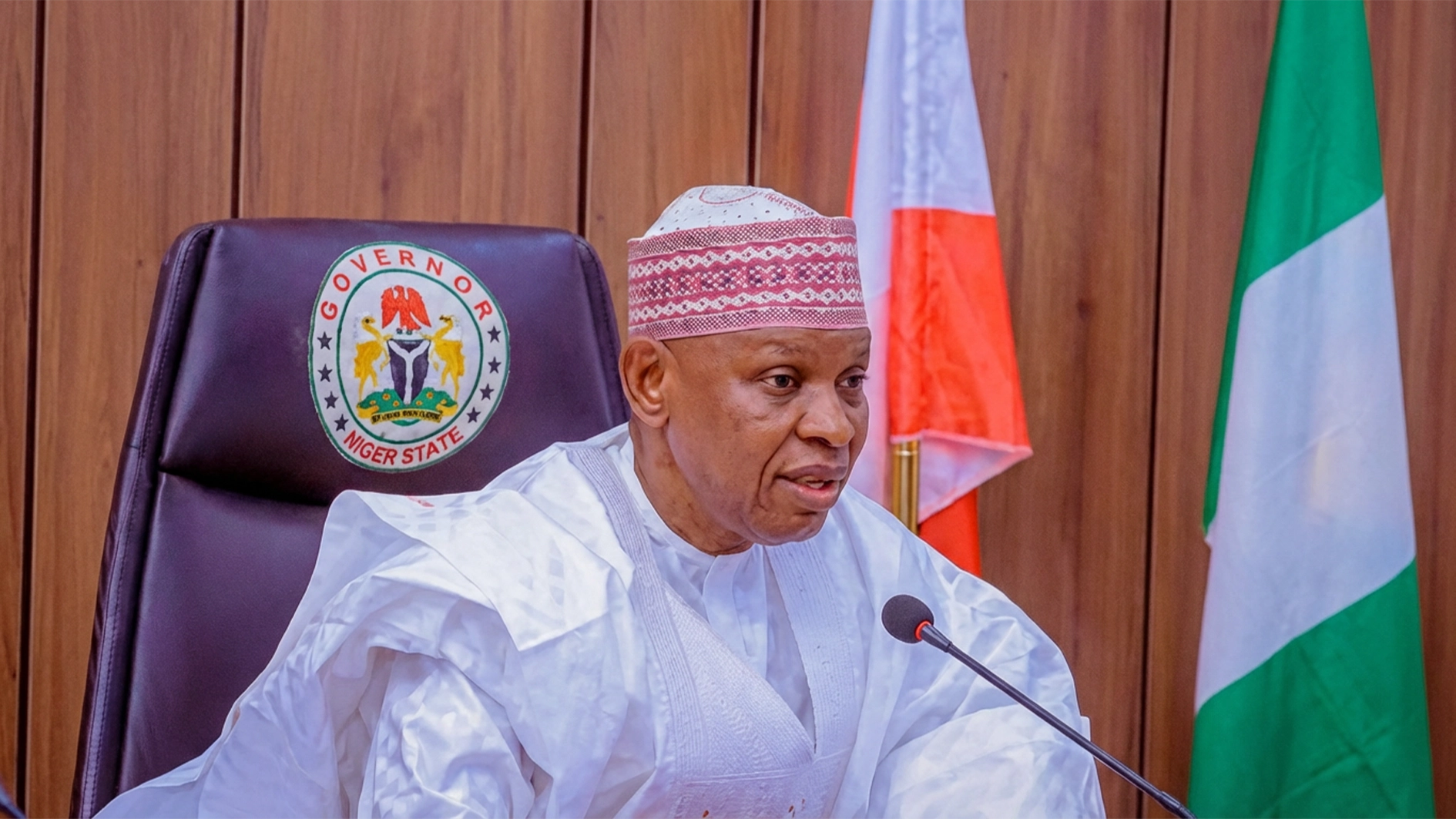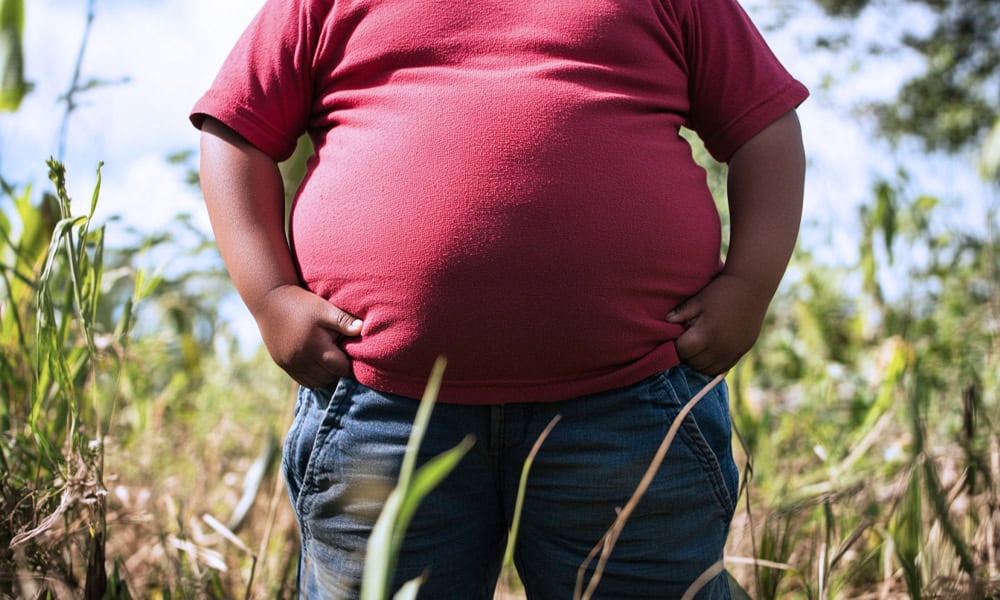
Ahead of the 2023 General Elections, stakeholders in the healthcare sector have urged Nigerians to challenge politicians, especially the presidential candidates on their economic plans with regards to health and how to improve resources for the health sector.
The stakeholders at the 2022 Future of Health Conference titled, ‘The Political Economy of Health: Investing in the Future of Nigeria’, organised by the Nigeria Health Watch, said as the 2023 general elections approach, another opportunity has been presented to take advantage of the potential policy window to push healthcare up the political agenda and ensure that it takes its rightful place of prominence alongside the economy, security and other priority issues in the political discourse.
They cited a McKinsey Report, which showed that the economic benefits from various health improvement strategies are substantial enough to add $12 trillion or 8 per cent to global Gross Domestic Product (GDP) by 2040. That translates into 0.4 per cent faster growth every year.
Ultimately, they said, focusing on known health improvements could deliver an incremental economic benefit of $2 to $4 for each $1 invested.
The Federal Government has failed for the umpteenth time to meet the Abuja Declaration by African leaders in 2001 and the World Health Organisation (WHO) to allocate, at least, 15 per cent of yearly national budgets to health.
In April 2001, the African Union (AU) countries met in Abuja and set a target of, at least, 15 per cent of their yearly budget to improve the health sector.
Director General, Budget Office of the Federation, Dr. Ben Akabueze, said the Federal Government has increased budgetary allocation to sector by 33 per cent, from N823.5 billion in 2022 to N1.1 trillion in 2023. He, however, said the Budget Office does not yet have comprehensive data on actual amount Nigeria invests in health.
Indeed, for the first time in the history of health funding in Nigeria, over N1 trillion was allocated to the sector in the proposed 2023 budget.
Akabueze, in his presentation titled, ‘Financing Healthcare Sustainably in Nigeria’, said the importance of better health services for economic growth and development cannot be over emphasised.
Akabueze, who was represented by his technical assistant, Prof. Olumide Ayodele, said health investment serves as a catalyst for economic growth, through higher labour force, higher labour productivity, innovations, income growth, and improved wellbeing of the population.
Akabueze further explained: “It is generally said that health is wealth; a healthy population engenders economic prosperity. It is therefore imperative to ensure significant investment in health, effective delivery for healthcare services, and equitable access to healthcare services in Nigeria.
“Health is high on Nigeria’s development agenda. In view of the immense socio and economic returns of healthcare investment, a key objective of the national development plan 2021 to 2025 is to enable a healthy populace.”
On how much Nigeria invests in health, Akabueze said: “On the recent trends in federal healthcare financing, Nigeria currently allocates less than 10 per cent to health, the budget office is of the view that we are yet to have the comprehensive data on the actual amount that we invest in health, that takes into consideration, the allocation to the ministry of health headquarters and its agencies, Basic Healthcare Provision Fund (BHPF), allocation for immunisation, the Internally Generated Revenue (IGR) of these different agencies, of the ministry of health, and other health related spending in other sectors, and critically too, other investments by partners through multilateral and bilateral funding and grants.
“We want to see how much Nigeria invest in the health sector both at the federal, state and the local government levels. This is when we will be able to know the adequacy of the investment. And then, as we compare country data, we also need to take into consideration the different fiscal systems.
“In the Nigeria situation, our fiscal structure is such that we have the federal, state and the local government. And these subnational government are fiscally independent. So, it is important to be able to have these data across the 774 local governments and across the 36 states of the federation and the Federal Capital Territory (FCT) to determine how much goes into health.”
Managing Director, Nigeria Health Watch, Mrs. Vivianne Ihekweazu, in her welcome remarks, said politics, economics, and public policy are important determinants of population health.
Nigeria Health Watch is a health communication and advocacy organisation based in Nigeria. Ihekweazu said countries that practice social democracy, exercise higher public spending, and have lower income inequalities have populations with better health. She said a core approach to the political economy of health involves the interrelationship between governance, polities, power, macroeconomic policy, public policy, and population health.
Ihekweazu said the politicization of health has seen the increased involvement of political leaders in health affairs and has revealed the need for greater political support to drive a nation’s health agenda. She, however, said it has also undermined efforts to prioritise health policies as self-interest and the individual agendas of political leaders have often determined how a health policy is interpreted or how well it is implemented. Ihekweazu said this was seen during the COVID-19 pandemic, where the politicization of the response impacted the public response and compliance with public health advice globally.
Ihekweazu said there is no arguing the role a healthy population plays in the prosperity of any nation. She said a country that has achieved universal access to healthcare for its citizens is more likely to succeed than one where healthcare access is inequitably distributed.
Ihekweazu said political leaders must understand that Universal Health Care (UHC) cannot be achieved if the political atmosphere is not pro-health.
“They must also understand that investing in health is important for economic development as it also bolsters productivity. The WHO has acknowledged that progress towards UHC is in part political and if countries possess the political will, the necessary economic reforms can be carried out to make UHC possible.
“Ultimately, we need to push health up the political agenda if we are to make any meaningful progress towards achieving UHC and if we want to see an improvement in Nigeria’s health indices,” she said.
Nigeria Health Watch’s previous Future of Health Conferences had focused on Universal Health Coverage in 2015, Health Meets Tech in 2016, Business of Health in 2017, The Diaspora as Nigeria’s Brain Gain in 2018, Quality in Healthcare in 2019, Innovations in Health in 2020, and a focus on gender equality – Breaking Glass Ceilings in 2021.
Ihekweazu said the 2022 Future of Health Conference is to provide a visible high-level platform for key stakeholders in policy, governance, economics, and healthcare to discuss the factors that influence Nigeria’s health policies; how political, social, and economic factors shape individual and population health outcomes; health service development within the economic and political context; and how to create a national health service that meets the needs of all Nigerians.
A Professor of Health Economics and Policy and Pharmacoeconomics in the Departments of Health Administration & Management and Pharmacology and Therapeutics, College of Medicine, based in University of Nigeria, Obinna Emmanuel Onwujekwe, in his presentation titled, ‘The Political Economy of Health: Investing in the Future of Nigeria’, said health is seen as a ‘consumer’, not contributor to social and economic development and Ministry of Finance officials deprioritise allocation to health in favour of ‘more productive’ sectors. Onwujekwe said health actors focus should be investment cases that show links between health and development.
“Yet, health is critical for social and economic development (and the reverse also holds). Poor health linked to reduced employment and productivity, with youth and women particularly. Directly linking estimates of the cost of action to the costs of inaction enable policy makers to clearly see the investment case for early action to improve health,” he said.
Onwujekwe said there are clear economic gains in the short, medium and long-term. He said there is link between economic growth and good health, burden of diseases and effect on GDP.
The Professor of Health Economics further explained: “Economic gains in future years from preventing child mortality results in around an eight-fold return on investment.
“From 2020 to 2030 for Diarrheal Diseases (DD), scaling up to 90 per cent coverage results in almost four times the percentage of GDP gained than the percentage of GDP spent.
“For Lower Respiratory Tract Infections (LRTI), scaling up to national targets results in three times the percentage of GDP gained than the percentage of GDP spent.
“When these investments are implemented efficiently, over a million children’s lives will be saved and it will be feasible for Nigeria to achieve the SDG target on reducing under five child mortality to below 25 per 1000 live births by 2030.
“Investments required to obtain these large benefits are affordable at just 0.03 per cent of GDP per year during 2022-2030 in Nigeria for DD and 0.05 per cent for LRTI.”
Onwujekwe said from a gross domestic product (GDP) of $448 billion as of 2019, the current health expenditure in Nigeria amounted to US$13.564 billion, representing about 3.03 per cent of GDP in 2019, according to the World Bank, in 2022, which is substantially below the benchmark of five per cent.
He said there is generally low level of health spending, with less than five per cent of the GDP spent on health and public health expenditure contributing less than 30 per cent of total health expenditure.
Onwujekwe said more than 50 per cent of current health expenditure is allocated to curative care with respect to preventive/primary health care, indicating inefficiency of resource allocation.
Onwujekwe said the Basic Health Care Provision Fund is being implemented to increase financial resources for health care, but the proportion of the funds that get to the target beneficiaries is sub-optimal
He said the National Health Insurance Scheme (NHIS) has been replaced with the National Health Insurance Authority (NHIA) repositioning the strategy for enhanced coverage of Nigerians for financial risk protection.
Senior Health Specialist, World Bank, Onoriode Ezire, in his presentation titled, ‘The Economy of Health’, examined the economic cost of poor health prioritisation and benefits of prioritising health. Ezire said better health fueled global growth by enlarging the labour force; fewer people are likely to die prematurely, so the working-age population will increase.
He said investing in health would increase productivity. “Absences from sickness decline, and workers are less distracted by managing their own conditions or those of their loved ones. Also, fewer workers retire early because of health conditions,” Ezire explained.
He said investing in health would be important for building resilience against future health shocks. “Proven interventions—actions or programs such as adopting healthy behavior, expanding access to primary care, and improving adherence to medication—could reduce the global disease burden by 40 percent over 20 years,” Ezire said.
The health specialist said poorer people tend to have worse health, which can limit their economic potential and may even create a vicious cycle (poverty trap). He said poor childhood health translates to lower socioeconomic status in adulthood, increasing the exposure to health risks (such as poor-quality nutrition, unsafe housing, and unsafe neighborhoods) and the barriers to accessing health services, which then affect subsequent generations of children.
Ezire concluded: “The Nigeria health sector is still largely under funded and health indexes are still very poor. Investment in health is directly related to the growth of the economy. The productivity of the country is a function of the state and status of the health of the people of the country.
“Investment in health contributes to achieving other developmental goals like reduction in equity and promoting shared prosperity and government at all levels must prioritise health, as lessons from COVID 19 are still fresh.
“Government may use a mix of methods to increase health funding, we must be aware of that Civil Society organisation and health promoters, etc. have a role to play.”
Commissioner of Health, Enugu State, Dr. Obi Emmanuel Ikechukwu, who spoke on ‘Political Leadership in Health’, said: “Strategic policy frameworks exist and are combined with effective oversight, coalition building, regulation, attention to system design, and accountability.
“Strong governance in health systems must be guided by competent leaders with a clear vision and the ability to motivate and mobilise other health system stakeholders.”
Hakeem Bello-Osagie is a Nigerian businessman. He told the conference via zoom that there is need to make sure that hose who are contesting in 2023 have plans on how to improve the health of Nigerians.
Bello-Osagie, who is also chair of Metis Capital Partners an organisation focused on brokering and delivering attractive, large-ticket transactions in Africa to select blue chip international investment partners, said the issue of political will is critical. Forbes Magazine listed Bello-Osagie, in 2014, as the forty-first richest man in Africa.
“This is what will help in prioritizing health. There are countries with meager economy that have prioritised health. I think we need to engage our leaders and make them know that their priority is health, health and health. It cannot be when there is COVID-19 and Ebola that we allocate enough money to health. There also has to be administrative competence. How do we make sure that the amount of money that goes into healthcare is well spent? Managerial efficiency is very important to ensure that allocation to health is well spent and satisfactorily,” he said.
Special Adviser to Nigerian President on Finance and Economy, Dr. Sarah Alade, said: “When health is at risk, everything is at risk. Public health remains the fundamental building block. UHC is a basic economic engine. We need to incentivize the private sector.”
National President, Society of Gynaecology and Obstetrics of Nigeria (SOGON), Dr. Habib Sadauki, said only 22 per cent of women are using family planning method. Sadauki said: “How much you put in healthcare determines how much help you have and how much you have determines your economic growth. There is not budget line for family planning in the 2022 budget. The budget for family planning has been going down since 2018. If you don’t develop economically, you cannot have good health system. Nigeria needs to allocate more resources to family planning.”
Senior Health Specialist, Health Population and Nutrition, World Bank, Dr. Olumide Okunola, said health is not on the exclusive or concurrent list but on the residual list. “We need to prioritise health and how do we do it?” he said.
Founder, Flying Doctors Investment Company, Dr. Ola Brown, said investment in healthcare could solve the whole of Nigerians problems. She said the British National Health Service (NHS) is the largest employer of skilled labour in the United Kingdom (UK). “If you are able to invest in healthcare, you will be solving the security and unemployment problem,” she said.
Senior Economic Adviser, United Nations Development Programme (UNDP), Amarakoon Bandara, said health problems could be solved in isolation. “You have to address the issue of budget. The political leaders need to have to courage to take action and make decisions even before the election,” he said.
Executive Director, Centre for Universal Health, Chatham House, Rob Yates, recommended that Nigeria should remove fuel subsidy to be able to fund free healthcare for the citizens. “If you remove fuel subsidy, you will get free healthcare. If you want rapid UHC, you have to do something radical. You have to offer free healthcare,” Yates said.
Chatham House is a world-leading policy institute with a mission to help governments and societies build a sustainably secure, prosperous and just world.
Nigeria Coordinator, Prevent Epidemics, Global Health Advocacy Incubator (GHAI), Dr. Emmanuel Alhassan, said the importance of political leadership at national and sub national level cannot be overemphasized. “If we work well with political leaders, we can improve health funding,” he said.
Commissioner of Health Kaduna State, Dr. Amina Mohammed Baloni, and former Commissioner of Health Cross River State, Dr. Betta Edu, shared their experiences on how they were able to use drones and community volunteers to deliver medical supplies in hard-to-reach communities in their states due to prioritization of health by their governors.
Commissioner for Health and Human Services, Ekiti State, Dr. Oyebanji Filani, said that primary health centres all over the world, require adequate financing and service delivery. Filani said high performing health systems recognise the importance of having an effective PHC service as a key driver of achieving UHC. He said although Nigeria has seen marked improvements in service delivery of primary health care, increasing financing and improving current financing arrangements can catalyse the country’s goal of achieving UHC by 2030.
Meanwhile, Ihekweazu said the objectives of the 2022 Future of Health Conference are to foster dialogue among critical stakeholders in policy making, economics, and healthcare on the need for more innovative, scalable, and sustainable healthcare strategies by identifying gaps that exist in political will and efforts in healthcare policies and implementation and highlight the importance of collaboration between the public and private sector to initiate and implement strategies to improve healthcare service delivery, access and indices.
She said other objectives are to amplify the role of local, state, and Federal Government in creating a more favourable environment for better healthcare access to achieve better health outcomes for individuals and communities, roles of political office holders at Local Government Areas (LGA) and states in healthcare and roles of community leaders, community groups and Civil Society Organisations (CSOs) in driving improvement in healthcare access and delivery in Nigeria.
Ihekweazu said another objective of the conference is to advocate for the development and implementation of policies that effect positive change, growth, and development for Nigeria’s healthcare system and approaches to be taken to ensure holistic improvement of the health system.
She further explained: “There are 36 states in Nigeria – each with its own budget, priorities and constitutional authority for health sector interventions. Health outcomes at sub-national level are largely determined by the political will to implement health policies at state level. Unfortunately, subnational health indices have shown that health might not be a priority for some political leaders.
“Furthermore, the state of Primary Health Centres across the country are glaring examples of the inequalities in health service delivery at subnational. To make health a priority at the sub-national requires leadership and a clear understanding of the health burden in the state.”






